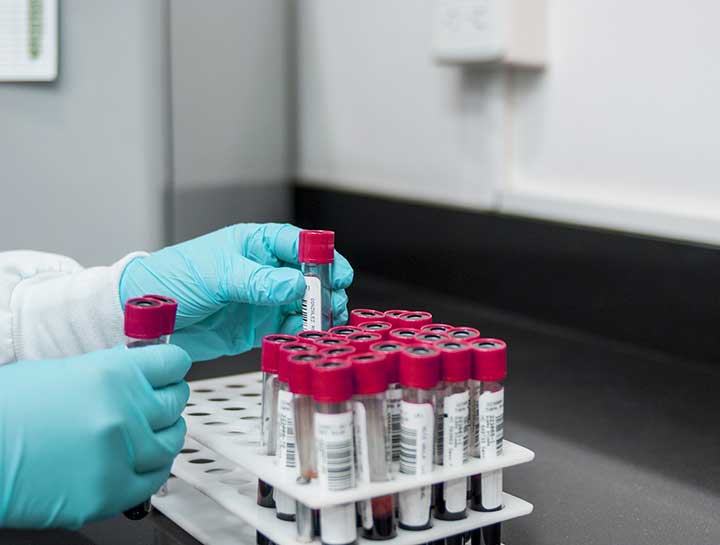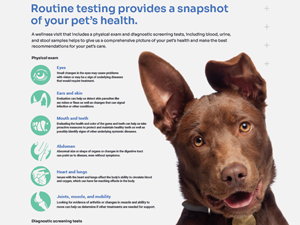In-House Laboratory
Immediate results to aid in your pet's care.
Labwork can help pinpoint problems. Some medications can harm pets with underlying problems like kidney or liver disease. Running tests can ensure your pet is healthy enough to take the appropriate medications. Even in young and healthy pets, lab testing gives us a valuable baseline picture of what represents good health for your pet. A recommended part of your pet’s annual exam, blood tests can spot health trends sooner, before they become more serious.
Standard blood and urine test panels for dogs and cats routinely check for many problems. Most commonly we will look at:
- Complete Blood Cell Count (CBC) provides important information about the types and number of blood cells in your pet’s blood. A low red blood cell count, for example, indicates anemia, while a high white blood cell count can indicate an infection, chronic inflammation, or other disease process.
- Blood Chemistry Profile is particularly important for evaluating organ function (e.g., liver, kidneys), electrolytes, blood sugar, screening for the presence of an endocrine disorder, etc. Any abnormalities will help us decide on further diagnostic tests or treatments.
- Urinalysis (UA) testing provides important information including a chemistry analysis of the urine as well as a visualization of crystals, bacteria etc. in your pets urine that could be indicators for diseases ranging from diabetes to urinary tract infections.
Heartworm Tests can detect evidence of heartworm disease. For a more complete picture, we will often combine a blood panel with other tests, such as a urinalysis and fecal examination.
Helpful Materials
When can I expect results?
Many of the tests routinely recommended can be performed in-clinic, providing results quickly and allowing for immediate treatment of your pet, but some routine screening tests will be sent to the reference laboratory which provides results often the next day.
Normal results can rule out certain diseases immediately, so you can worry less. Your veterinarian will also store this information for the life of your pet and use it to understand your unique pet better. If the results are abnormal, your veterinarian can make decisions about the next steps, including treatment and additional tests. This saves you time as well as trips back and forth to your veterinarian and gives you answers that may help your pet right away.
At Spring Harbor Animal Hospital, in Madison, WI, we would love to help take care of your pets. Call us today at (608) 238-3461, to schedule an appointment.




